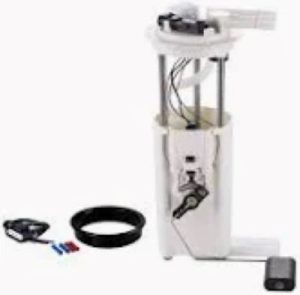A defective fuel pump may cause engine misfires that prevent the smooth supply of gas needed for proper combustion. The pressure of fuel being sent to the engine is around 30-80 psi which varies with vehicle specifications. Since air-fuel mixture is not properly mixed and does not get the right amount of fuel it can be regarded as Lean conditions when this type situation occurs only because vehicle doest receive adequate fuel due to decline in pressure from Fuel pump. Automotive diagnostics have shown that pressure drops as low 10% can cause an engine to misfire, especially at higher RPMs or during hard acceleration when fuel demand is greatest. Low fuel pressure misfires are often accompanied by symptoms such as rough idling, hesitation and stalling that can affect performance and mileage.
Fuel starvation due to a weak pump also contributes greatly to combustion imbalance. If the pump stops being able to consistently shove fuel into your combustion chamber, then you only get half a luxuriant air and gas mixture in with all that oxygen.That leaner offering won't burn completely therefore we start getting misfires. This is especially for high-performance or turbocharged engines where repeatable fuel delivery elieved based on increased power requests. Extensive studies on fuel system efficiency have consistently revealed vehicles running pumps delivering at over 15 percent less than optimum output even in production tolerance can experience a full quarter greater propensity for misfires under high-load conditions. A dying pump's inconsistent fuel flow interruptes the right spray pattern most injectors, and does it exactly at a time when proper atomization is key to thorough combustion.

The result of a pump that is not functioning correctly are going to be something far worse than delayed fuel supply; it will have adverse effects on other engine parts for instance the ignition coils, spark plugs and also at times even catalytic converter. Since fuel starvation causes poor combustion, products like coils and plugs must work harder to correct the imbalance in composition of compound fuels or air-fuel mixtures, causing them to wear out soon. As per mechanics, a fuel pump with reduced efficiency can cut the life of spark plugs by as much as 30%, especially for engines where performance is concerned. The lack of complete combustion may cause unburned fuel to accumulate in the exhaust system, which may ignite at that point due to high temperatures (a malfunctioning catalytic converter also can catch on fire) or as it exits the tailpipe while allowing more oxygen into a hot catalyst and further increasing its operating temperature.
Another, less obvious but bitchy side indicator of our subject's weak pump is the engine efficiency and f uel economy. Lean engines have to work harder keep air fuel ratios in range and generally use more gas. This decrease in fuel efficiency may be most pronounced for daily drivers or under heavy load, as is the case when towing. Fuel system experts advise having the fuel pump and its associated parts checked out when symptoms are noticed that include — besides sudden dips in mileage, prolonged cranking times or frequent stalling.
Replacing a failing Fuel Pump before it fails can save your engine from Misfire and extend the life of Ignition components enabling It to perform consistently. Fuel Pressure, flow rate and filter condition are assessed routinely as part of regular maintenance giving the fuel delivery system a renewed life protecting your engine against misfires and associated damage.
